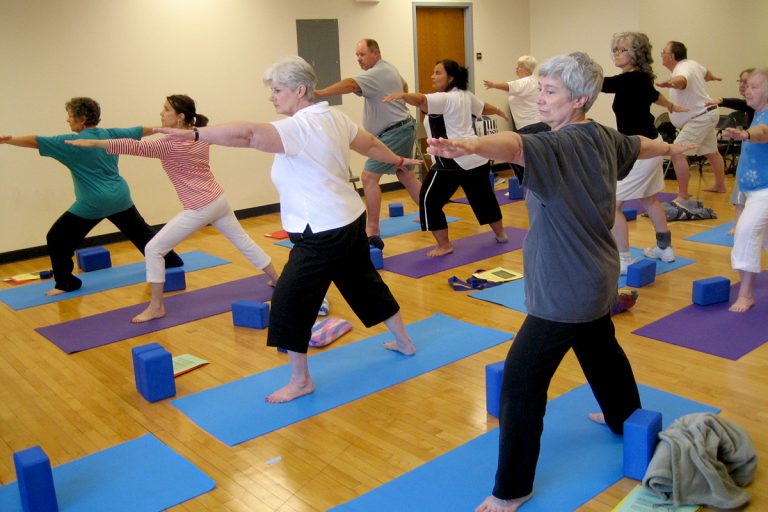URBANA – Practicing yoga could lead to improved brain health, according to a University of Illinois review of the available research on how the practice affects the brain.
Neha Gothe, a U of I assistant professor and coauthor of the research review, said the brain health benefits of yoga are similar to the neural effects from aerobic exercise. However, Gothe said, the field of yoga study is much newer. While aerobic exercise, like walking or running, and its impact on the brain has been studied since the mid-twentieth century, systematic research into yoga and its impact on the brain began only about 20 years ago, she said.
The research review focused on 11 studies that fall into one of two categories; the first focuses on comparing experienced yoga practitioners to those who have never practiced yoga, while the second follows individuals practicing yoga over a certain time period, Gothe said.
“And there were a few brain regions that were consistently highlighted across these studies,” she said. The hippocampus, the region of the brain that controls memory, the amygdala, which serves as the emotional regulation center, and the prefrontal cortex, the most advanced area of the brain in terms of complex cognitive processes, were found to be enlarged in individuals who practice yoga, Gothe said.
“So we see that individuals who practice yoga tend to have larger structures compared to those who don’t,” she said.
The research also found that people who regularly practice yoga expend less effort performing certain mental tasks inside an MRI (magnetic resonance imaging) machine, Gothe said.
[perfectpullquote align=”right” bordertop=”false” cite=”” link=”” color=”” class=”” size=””]“So we see that they need fewer brain resources or fewer neuronal resources to accomplish the task as compared to somebody who hasn’t practiced yoga before.”
Neha Gothe, assistant professor at the University of Illinois[/perfectpullquote]
“When you have yoga practitioners in the machine and have them do tasks about memory or about problem solving, we see lower activation. So we see that they need fewer brain resources or fewer neuronal resources to accomplish the task as compared to somebody who hasn’t practiced yoga before.”
While exercise research points to positive effects from aerobic exercise on the hippocampus and prefrontal cortex, Gothe said the link effects on the amygdala, the emotional regulation center, may be specific to yoga.
“Yoga is unique in the sense that it is meant to calm you down, it’s meant to relax you, it’s meant to lower your stress. And so I think the amygdala effects seem to be unique to yoga,” Gothe said.
But Gothe said the research quality and quantity is lacking. She said there’s outstanding questions about how yoga affects neural health.
“One is what should be the dose of yoga. So if you’re saying yoga is good for the brain, and it’s good for brain health, how much yoga should I be doing to get these benefits? And we don’t have a very conclusive answer for that question yet,” Gothe said.
She said it’s also unclear what areas of the brain aren’t affected by yoga, and that information is important for researchers to understand as they examine the benefits of the practice. Also, she said, it’s unknown what specific populations may benefit more than others from a yoga practice.
“And so we aren’t able to definitively say if these benefits are good for everyone across the board, or if these benefits are unique to certain individuals, such as older adults who may be aging and who seem to be on the decline for some of these brain health functions,” Gothe said.
Gothe said, given the rising popularity of the practice, that she’s hopeful better quality research studies teasing out the relationship between yoga and the brain will emerge in the future.
“And hopefully this (research review) will serve as the next steps for future research to come,” she said.
Follow Lee Gaines on Twitter: @LeeVGaines

